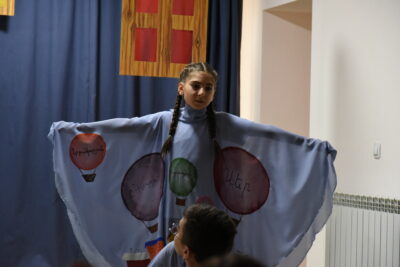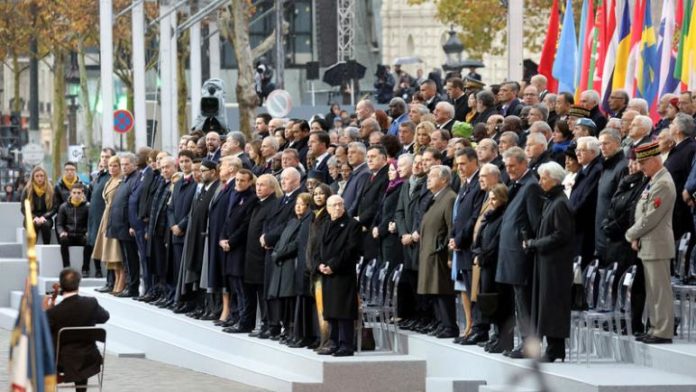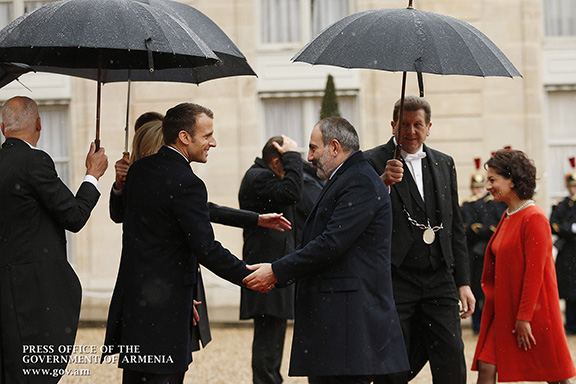PARIS (Reuters) — President Emmanuel Macron led tributes to the millions of soldiers who died during World War I on Sunday, November 11, holding a solemn ceremony attended by dozens of world leaders in Paris to commemorate the centenary of the Armistice.
US President Donald Trump, Russian President Vladimir Putin, German Chancellor Angela Merkel and dozens of princes, monarchs, presidents and prime ministers joined Macron to mark the moment guns fell silent across Europe a century ago.
Those who fought in the trenches of World War I lived through an unimaginable hell, Macron said in a 20-minute address, highlighting that as well as the deaths of 10 million troops, millions of women were widowed and children orphaned.
“The lesson of the Great War cannot be that of resentment between peoples, nor should the past be forgotten,” said Macron, sorrow etched on the faces of former French soldiers standing to attention around him during the ceremony.
“It is our deeply rooted obligation to think of the future, and to consider what is essential.”
The commemoration is the centerpiece of global tributes to honor those who perished during the 1914-18 war and to commemorate the signing of the Armistice that brought the fighting to an end at 11 a.m. on November 11, 1918.









